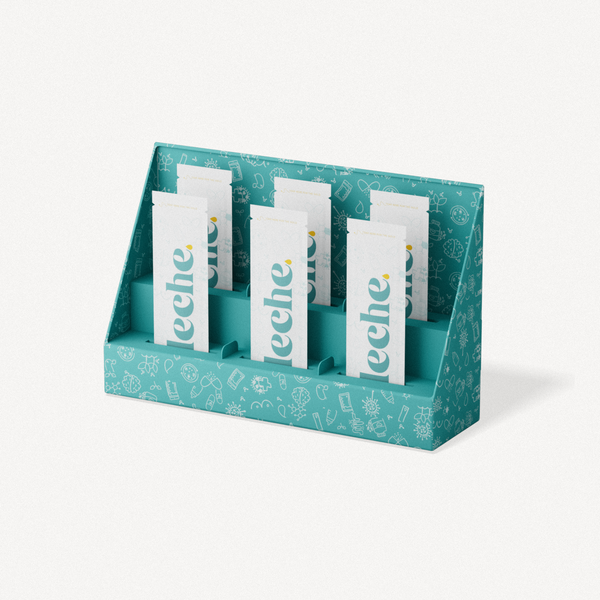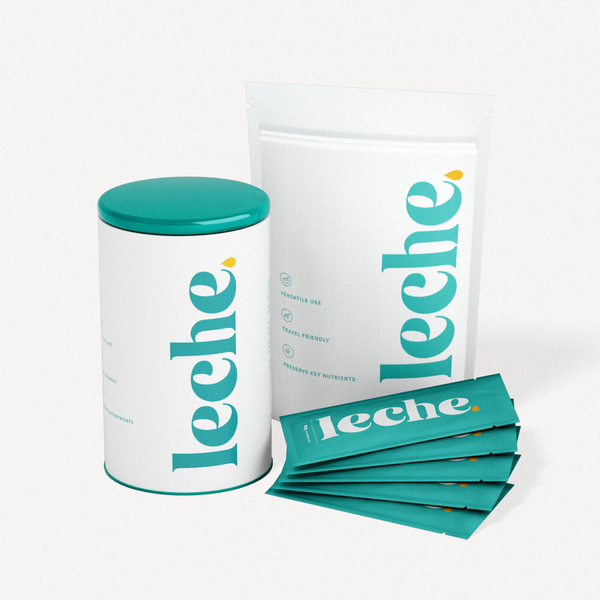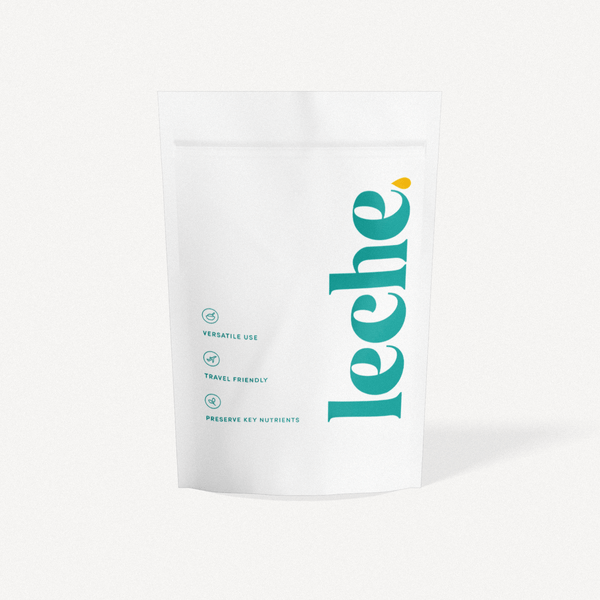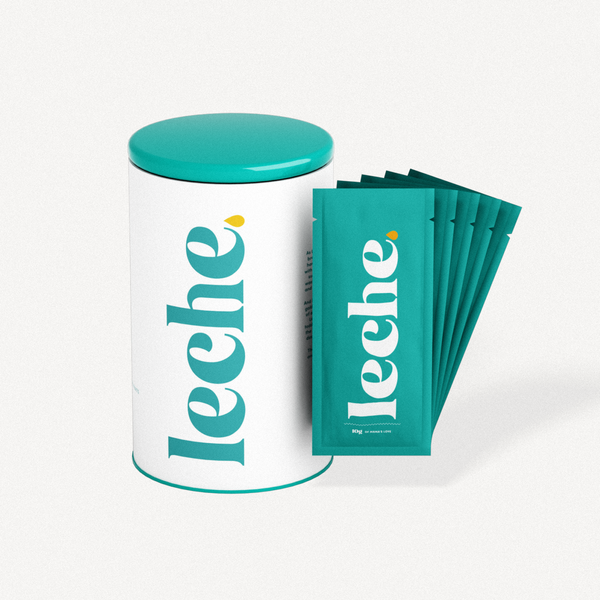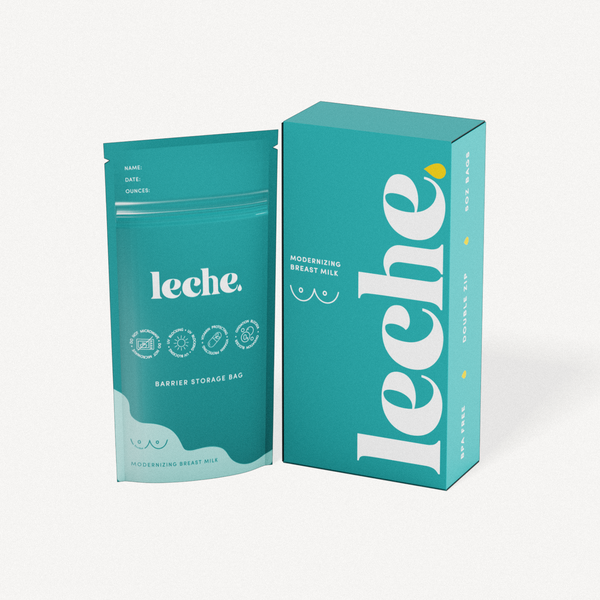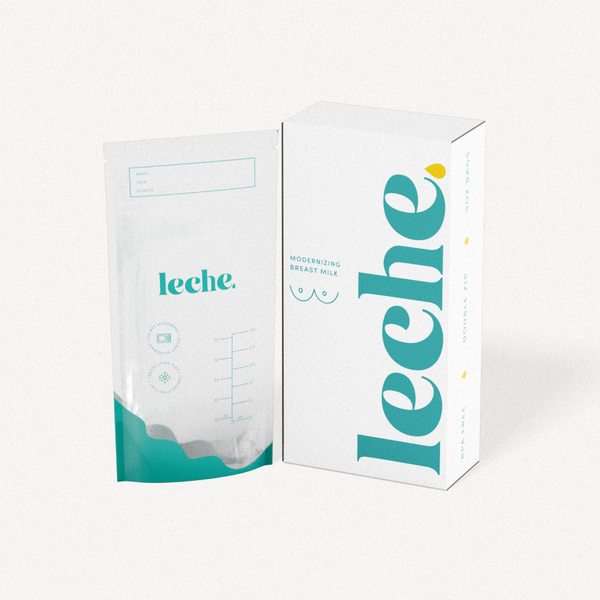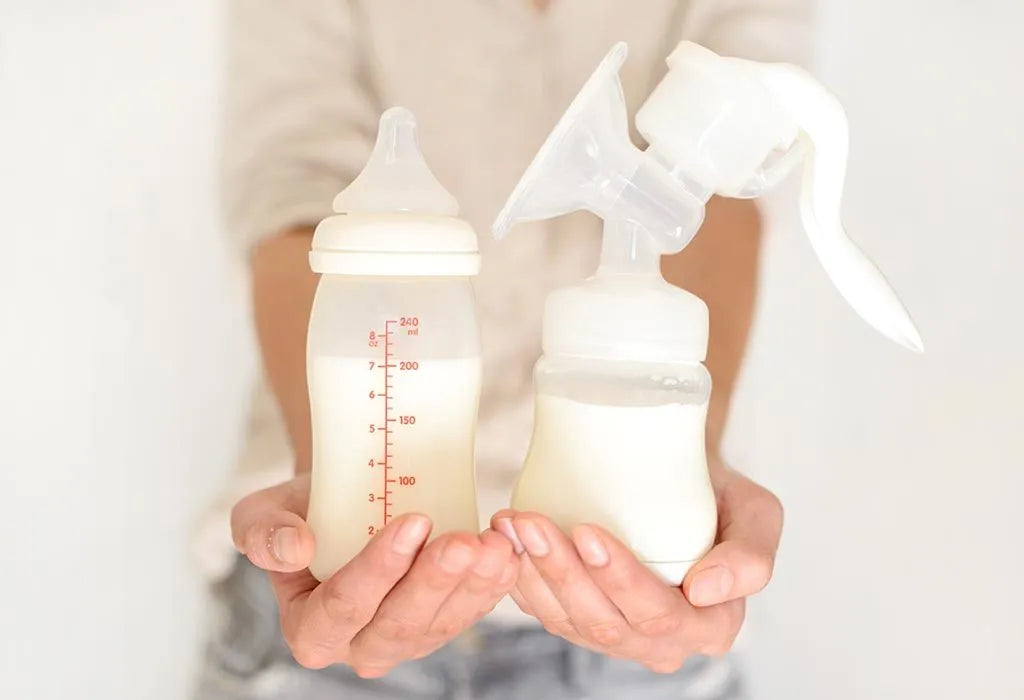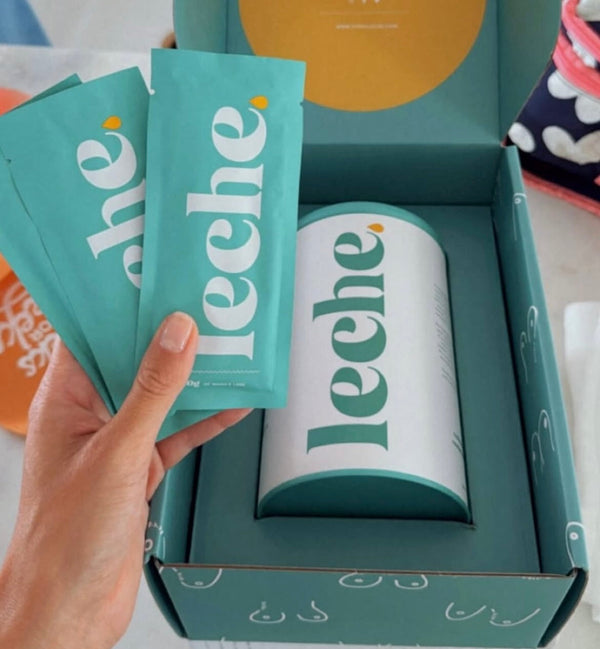Is your baby rejecting your refrigerated or frozen breast milk?
Picture this...you've stored some precious liquid gold in the fridge or freezer for your little one, only to find out they refuse it with a look of disgust on their cute little face. Take a deep breath, mama. There's nothing wrong with your milk - in fact, it's nutritionally perfect for your baby and tailored to their needs. Sometimes, the fat in our breast milk breaks down too quickly due to an enzyme called lipase, which can cause that funky smell and taste, so lipase may be to blame for your baby rejecting your milk.
Lipase is a naturally occurring enzyme in breast milk that breaks down fats in breast milk so that it is easily digestable for our little ones. When it is overactive, it can cause some unexpected smells or tastes with refrigerated or frozen breast milk. A note to YOU…in this article, we will not refer to your milk as having “excess” enzymes or providing you “the treatment” for your high lipase. Women can have high lipase breast milk. They just do. This milk is safe and healthy, it’s just your baby’s preference for taste and smell. Here’s the good news — we’re here to help you feed your baby better with proven preventative measures and solutions for you both.
High lipase vs spoiled breast milk
It's important to differentiate between high lipase milk and spoiled milk. Spoiled milk will have a distinctly sour and unpleasant smell, unlike the certain specific aromas associated with high lipase which are metallic, soapy, or fishy.

What is high lipase breast milk?
High lipase breast milk is simply breast milk with a higher concentration of the lipase enzyme. Lipase helps in breaking down fats, making it easier for your baby to digest the milk. It's a natural variation and is perfectly safe and healthy for your baby. Lipase plays a crucial role in ensuring the fats in breast milk are easily digestible for your baby. Its higher concentration can sometimes affect the taste and smell of the milk, but this doesn't diminish its nutritional value.
Is high lipase milk bad for my baby?
No — absolutely not! High lipase milk is just as nutritious and safe as any other breast milk. The only difference is in its taste and smell, which some babies might notice, leading them to refuse bottles, while others may not. There is no evidence to suggest that high lipase milk causes any digestive issues in babies.
Can You Save High Lipase Milk?
Yes, you can save high lipase milk. Proper storage techniques are key in preserving its quality. Freezing the milk immediately after expression is a commonly used method.
Why Do I Have High Lipase Milk and Others Don’t?
High lipase levels in breast milk can vary among women due to genetic factors or dietary influences. It's a natural variation with no known specific cause.
How Common Is High Lipase Breast Milk?
High lipase breast milk is quite common, though the exact prevalence isn't well known yet. It's a natural variation and not a cause for concern.

Signs You Have High Lipase Breast Milk
You can’t see lipase, but changes in taste or smell can indicate its presence. The most notable signs of high lipase milk are changes in taste and smell. You might notice your milk having a scent or taste similar to metallic, vomit, eggs, soap, or fishy. The appearance of the milk might also change, though this isn't always the case.
How Do I Know If I Have High Lipase Milk? Simple At-Home Tests to Tell if You Have High Lipase Breast Milk
- The 24-Hour Test: Store a sample of your breast milk in the refrigerator for 24 hours and then check for any changes in smell or taste.
- Second Method: Freeze a small amount of milk and thaw it after a few days to test for any differences in taste or smell.
Will I Always Have High Lipase Breastmilk?
Not necessarily. The concentration of lipase can vary over time and even from one pregnancy to another.

Helpful Tips to Reduce or Prevent High Lipase Breast Milk
- Freeze Dry Your Breast Milk: Freeze-drying breast milk is now the preferred method for mothers with high lipase because it effectively preserves the milk's nutritional quality while neutralizing the enzyme's impact on taste and smell 90% of the time. Ready to learn more about freeze drying? You're in the right place...browse Leche's most popular freeze drying services here!
- Scald Your High Lipase Breast Milk: Gently heating your milk can deactivate the lipase enzyme however, scaling could reduce some of the beneficial nutrients and gut bacteria you do want to preserve in your breast milk.
- Track Time: Be mindful of how long your milk is stored before use.

Creative Ways to Use High Lipase Breast Milk - Embracing Your Enzymes
- Camouflage the Taste: Serve it chilled, mix it with food, or blend it with other ingredients.
- Make Breast Milk Taste Sweeter: Try adding it to smoothies, making popsicles, or even ice cream.
- Breast Milk Soap Bars: Breast milk is known to have incredible benefits for you or your baby’s skin. Read more for an idea to make breast milk shea butter and oatmeal soap bars here!
- Donate: Your high lipase milk is still valuable and can be donated. Here are some of our helpful tips on navigating the donation marketplace.
Remember, having high lipase breast milk is very common and nothing to worry about. With the right knowledge and techniques, you can continue to provide your baby with the best nutrition possible -- your breast milk. Remember, mama, you're doing an amazing job and your breast milk is perfect for your baby. Don't let high lipase bring you down!
If you have specific questions about high lipase breast milk and want to chat with our team, send us an email at support@itsmyleche.com — we're here for you!
